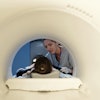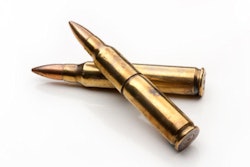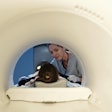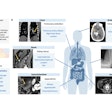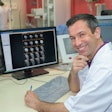
A Florida radiologist who interpreted the scans of victims of last week's high school shooting has described her experience -- and issued a call to ban the type of assault rifle used in the massacre -- in an article published February 22 in the Atlantic.
Dr. Heather Sher is a radiologist with North Broward Radiologists in Fort Lauderdale, about 24 miles from Parkland, where on February 14 a gunman armed with an AR-15 assault rifle began shooting at students at Marjory Stoneman Douglas High School. Seventeen students and staff members were killed and over a dozen were sent to area hospitals.
Sher said she interprets images from handgun injuries "almost daily," with a typical bullet injury appearing as a laceration through the organ, leaving bleeding and some bullet fragments. But the images coming from Stoneman Douglas -- where the shooter used an AR-15 rifle -- were different, with the gun causing extensive damage to victims.
"The organ looked like an overripe melon smashed by a sledgehammer, with extensive bleeding," Sher wrote of one case. In another case, "only shreds of the organ" that had been hit by a bullet were left, leaving nothing for trauma surgeons to repair. The patient died.
Sher further explained how the wounds left by high-velocity AR-15 bullets are different from ordinary handgun injuries, with bullets leaving the muzzle three times faster than with a handgun. AR-15 bullets cause cavitation as they pass through the body, a process in which tissue is displaced, causing damage several inches around the bullet's path and destroying organs.
Sher compared images from the Stoneman Douglas shooting with those she interpreted from another mass shooting last year, when a gunman armed with a 9-mm handgun began shooting people at the Fort Lauderdale airport, injuring 11 people in nine seconds. Perhaps due to the lower velocity of the bullets, all six of the victims who were sent to Sher's hospital survived.
She concluded with a call to ban the AR-15 assault rifle and repeal legislation passed in 1996 that prohibits the U.S. Centers for Disease Control and Prevention (CDC) from studying gun violence as a public health issue.
"As a doctor, I feel I have a duty to inform the public of what I have learned as I have observed these wounds and cared for these patients," Sher wrote. "It's clear to me that AR-15 or other high-velocity weapons, especially when outfitted with a high-capacity magazine, have no place in a civilian's gun cabinet."


